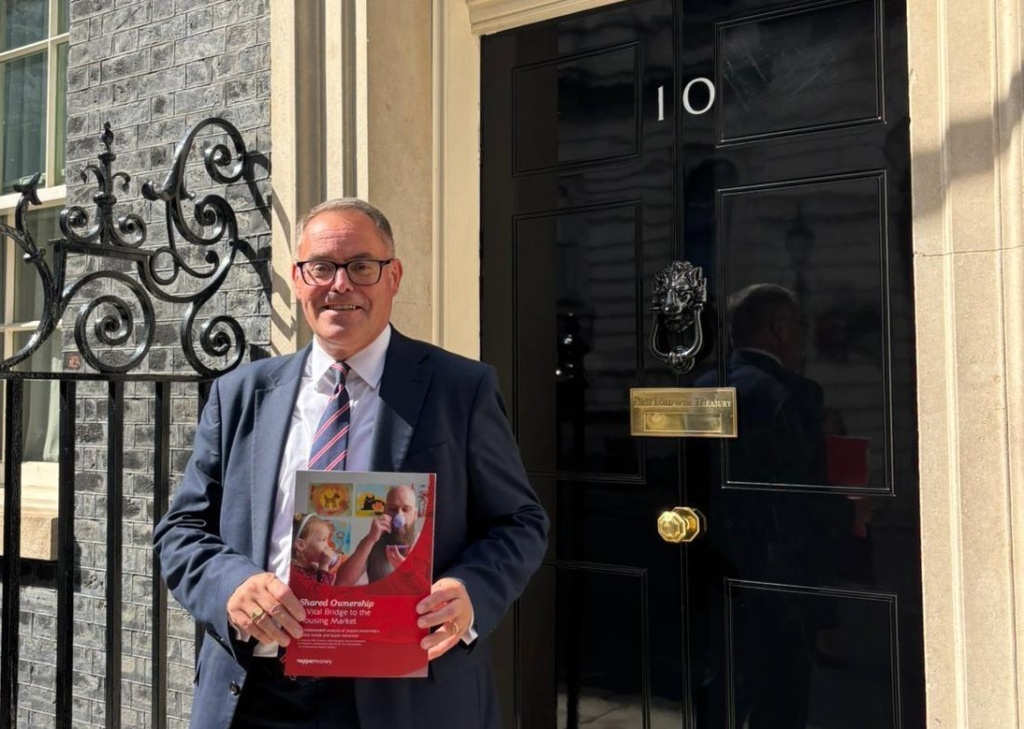
Pepper Money has called for the lifting of the shared ownership household income threshold as part of a package of reforms to boost this form of homeownership.
The specialist lender took its campaign to No 10 Downing Street today to present its white paper to the government ahead of the Budget.
Pepper Money intermediary relationship director Rob Barnard handed in the paper called, Shared Ownership – A Vital Bridge to the Housing Market, which calls for “a more inclusive shared ownership market”.
Former Bank of England economist Rob Thomas and former Chief Secretary to the Treasury David Gauke helped draft the document.
It comes ahead of the publication of the government’s prospectus for the new Social and Affordable Homes Programme in Autumn, following confirmation by ministers that shared ownership will continue to be part of the UK’s affordable housing mix.
One of the key measures the lender calls for is an uplift to the household income threshold test that shared ownership applicants are subject to.
Currently, an applicant’s household income must be £80,000 a year or less, £90,000 a year or less in London.
But the lender says: “The current threshold hasn’t moved since October 2016, meaning it’s fallen by 35% in real terms due to inflation.
“If the thresholds aren’t adjusted for earnings growth, this risks creating a situation where shared ownership locks people who have no other routes onto the housing ladder out of the market, which could undermine both demand and supply.”
The lender also calls for:
-
An independent body to publish industry data to equip policymakers with a comprehensive picture of the market
-
A review of Homes England’s capital funding guide, “to create a more standardised approach that accommodates customers who are ‘just off the high street’”
The Homes England capital funding guide sets out the rules and procedures for all providers delivering affordable housing through the government housing agency’s affordable homes programmes.
Barnard says: “Our policy recommendations are pragmatic, cost effective, and provide certainty for the sector to ensure that shared ownership continues to be the vital pathway to home ownership so many rely on.
“The government has rightly outlined their ambition to build 1.5 million homes by the next election, and that can only be achieved by supporting a range of types of home ownership, including shared ownership.
“The unintended consequence of the status quo is a less viable tenure, with shared ownership becoming less accessible for financially capable people seeking their own home and has the potential to undercut the government’s own bold house building ambitions.”



